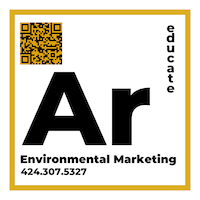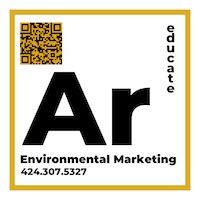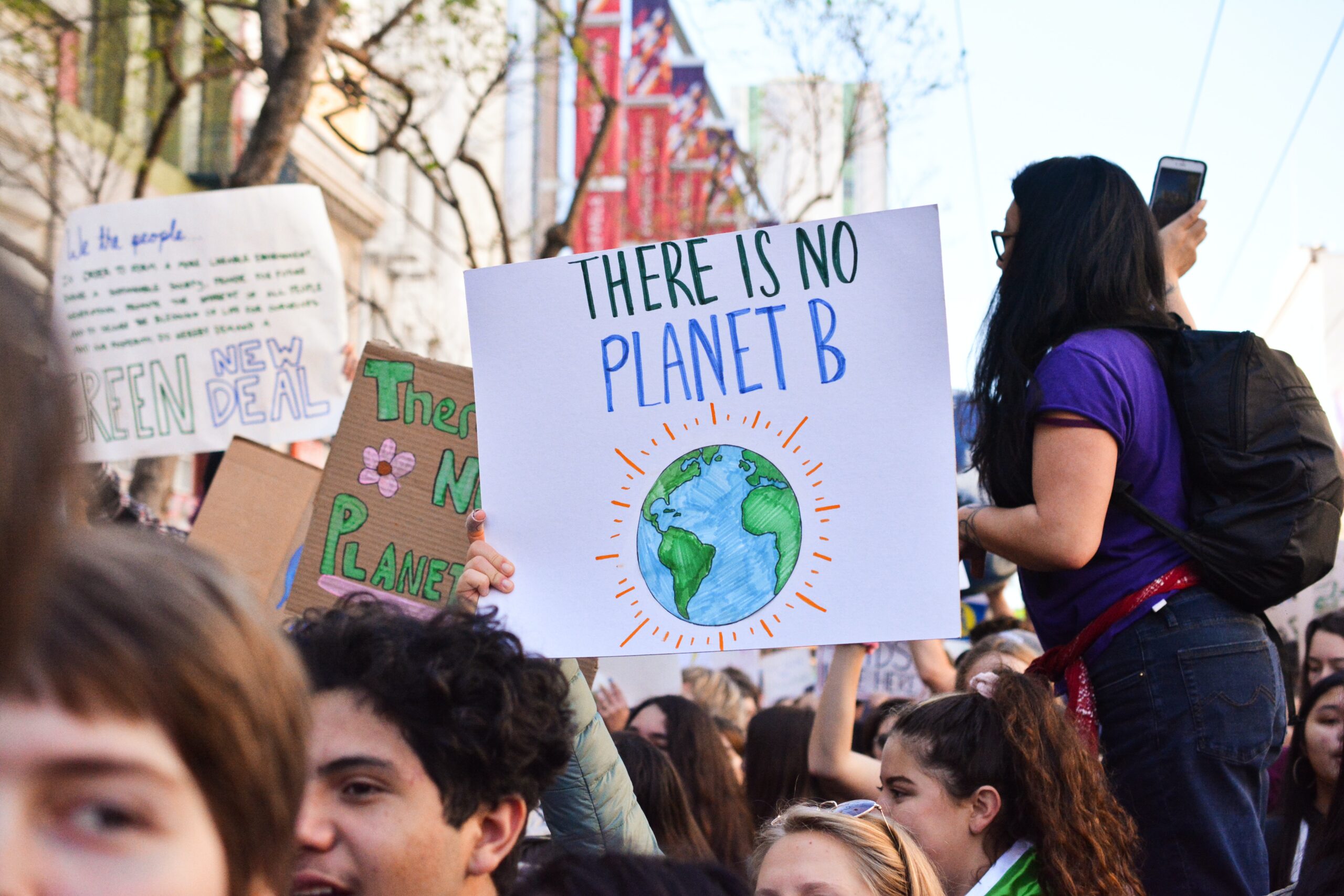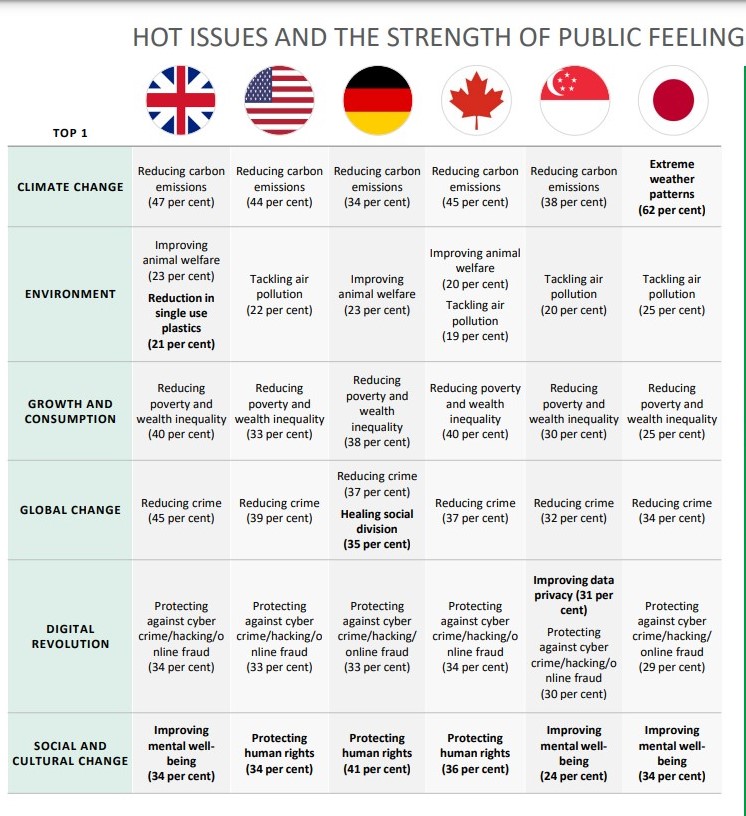The bad news, climate change is rapidly evolving; the good news, marketers can use content to make a positive impact.
Though climate change is accelerating at an alarming pace, the silver lining lies in leveraging communications about it as a powerful tool for fostering positive change. But does environmental marketing truly extend beyond promoting products and services? At its core, it undoubtedly does, given its pivotal role in crafting narratives, influencing behaviors, and propelling societal transformation toward enhancing our positive impact.
In an era where climate change commands our undivided attention, marketers are responsible for accurately conveying and advocating sustainable choices and spotlighting companies creating tangible solutions towards mitigating climate change. Recent research highlights the need for marketers to make changes that decrease the environmental impact of a number of industries.
“Environmental activism has reached an inflection point, as consumers increasingly demand change from business leaders and corporations.” -Deloitte research
The Future of Marketing in a Climate-Conscious World
As we move forward, marketers have a responsibility to help consumers and B2B supply chain buyers discern products that shouldn’t exist in a sustainable future and instead educate on green versions of products. In turn, making this emphasis and educating on our spectrum of choices can drive demand for cleaner production processes and reduce carbon emissions.
In the future, could there be a virtuous “flippening” where advertising prompts people to choose more valuable, cleaner products with higher standards than cheaper, less sustainable alternatives? If so, marketing will be pivotal in driving this sustainable future flip, where “alternatives” become mainstream.
Greenwashing and the Role of Environmental Literacy in Marketing
In the quest for success, marketers must have a thorough, scientific understanding of the green products and services they promote, particularly concerning environmental impact. Without this knowledge, people risk misrepresenting, or “greenwashing,” products or services by presenting them as more environmentally friendly than they may be in reality. This can damage a company’s reputation, weaken environmental impacts, deteriorate consumer trust, and even lead to legal consequences for some.
Marketers, who may not fully understand the scientific aspects of what they are promoting, can sometimes make misguided claims that exaggerate or distort the environmental benefits of their products, resulting in them engaging in greenwashing. This can range from overstating a product’s recyclability to making unsubstantiated claims about its carbon footprint.
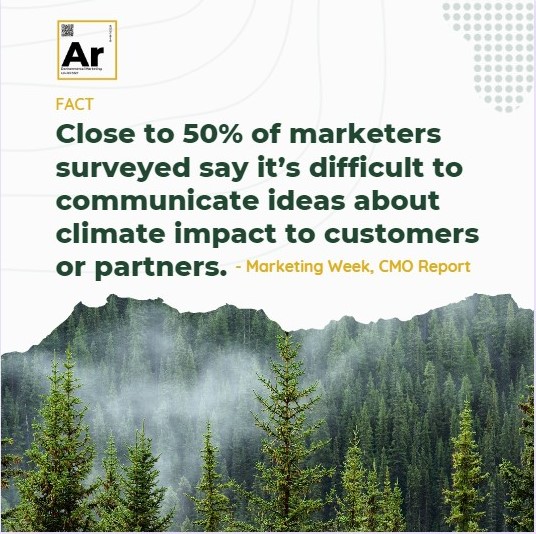
Environmental literacy
It’s great that marketers want to join the green revolution and feel good about the work they’re contributing to; however, careful attention to environmental literacy is crucial in preventing greenwashing. Marketers need to have a sound understanding of environmental science and the impact of products or services on the environment. This knowledge base will enable them to accurately assess the claims made by manufacturers.
Moreover, environmental literacy empowers marketers to ask the right questions and challenge manufacturers and businesses on their claims. Marketers cannot merely take a business’ word for how environmentally friendly their products are. They need to delve into the data, ask for evidence, and understand the methodologies used to calculate environmental impacts.
Environmental literacy involves understanding of environmental issues, materials, chemistry, cultures, biology, LCAs, Impact Reports, scientific studies, business impact, and various industrial processes. Environmental literacy allows marketers to become responsible stewards of the information they disseminate. This responsibility is crucial in an era of increasing consumer awareness and concern about the environmental impact of their purchases. Misrepresentation breaches this trust and hampers the overall movement toward a more sustainable future. The graph below highlights some of the top issues concerning consumers about the environment, according to a Deloitte Study.
The Power of Green Marketing
Effective marketing can play a pivotal role in promoting sustainable products and services. For instance, Quorn’s ‘Helping The Planet One Bite at a Time’ campaign encouraged meat eaters to switch to plant-based products.
Ariel’s “Every Degree Makes a Difference” campaign strives to enlighten consumers about the advantages of reducing washing machine temperatures and conducting laundry at lower degrees. This educational initiative by Ariel focuses on imparting key information to consumers via a partnership with National Geographic.
Marketers have a significant role in climate change mitigation in the broader context. They can shape consumer demand for sustainability, influence people to buy cleaner versions of products, promote recycling and re-use of items, and steer clear of more harmful products and practices. In doing so, they can help improve circular practices encouraging people to opt for products that lower their carbon impact and helping clean businesses outperform cheap, unbranded, and unsustainable products.
Environmental Content Marketing and Education: A Catalyst for Sustainable Change
In our fast-paced, digital-driven world, the power of information cannot be underestimated. It’s within this sphere that environmental content marketing finds its raison d’être. As a bridge between knowledge and action, it translates complex climate change concepts into relatable and compelling narratives, thus critical in mobilizing sustainability efforts.
Environmental content marketing refers to strategically creating and sharing valuable, relevant content that raises awareness about environmental issues and promotes sustainable practices. It’s not just about pushing products or services; it’s about getting people to talk, possibly altering opinions, and motivating people to do something that could potentially leave a lasting mark.
Education is a cornerstone of this process. 74% of business respondents in a Forrester Survey viewed customer education as necessary, very important, or extremely important to their business’ revenue. The climate crisis we face is complex, and understanding it requires awareness of the problem and a deep comprehension of its causes, impacts, and solutions at our disposal. Educating consumers empowers them to make informed decisions that are better for the environment.
The strategies to achieve these objectives are as diverse as the digital landscape allows. Storytelling, for instance, is a powerful tool that humanizes the abstract, making the climate crisis personal and tangible. It can involve sharing success stories of sustainable practices, visualizing the effects of climate change, or simply narrating the journey of a product from a sustainable supply chain.
Influencers, with their massive followings and persuasive power, can be leveraged to amplify the reach of environmental messages. They can endorse sustainable products, model eco-friendly behaviors, or share educational content about climate change, effectively turning their platforms into catalysts for sustainable change.
Social media has the ability to quickly spread important information around the world and encourage interactive conversations. It breaks down barriers to connecting with people from different countries and facilitates spreading awareness.
In essence, environmental content marketing is more than a promotional strategy. It is an educational tool, a call to action, and a beacon guiding us toward a more responsible future. As marketers, our task is to wield this tool effectively, turning the tide on climate change one informed decision at a time.
Examples of Climate Tech Innovators
Climate tech businesses are taking the lead in the battle against global warming, inventing progressive solutions to reduce carbon release, heighten efficiency, and endorse an unending cycle. Here are five companies making noteworthy strides:
SpringfreeEV, Rivian, Beyond Meat, and Mylo are all companies operating in the climate tech sector, which is dedicated to creating innovative solutions to combat climate change.
Spring Free EV: Spring Free EV is a fintech company co-founded and led by CEO Sunil Paul focused on increasing the adoption of electric vehicles (EVs) by providing innovative financial products. The company’s primary goal is to reduce CO2 emissions by one gigaton by 2030, a mission it seeks to achieve through a new approach to vehicle financing that makes EVs more accessible to everyone.
One of the key products offered by Spring Free EV is the Mileage Purchase Agreement (MPA). The MPA is a financial product that aims to make EVs more affordable by reducing the upfront costs associated with purchasing an EV. Instead of requiring the total cost of the vehicle upfront, the MPA charges a fee per mile of use. This approach could make EVs more affordable and accessible to a broader range of consumers, potentially accelerating the transition to cleaner, more sustainable modes of transportation.
Rivian: Rivian is an American automaker and automotive technology company that produces electric vehicles founded and led by CEO RJ Scaringe. Rivian contributes to the reduction of greenhouse gas emissions, especially by dedicating attention to the large trucks and SUV market, which has needed an EV option. The transportation sector is a significant source of these emissions, and electric vehicles can help mitigate this.
Beyond Meat: Beyond Meat, founded and led by CEO Ethan Brown, is a company that produces plant-based meat substitutes aiming to address the environmental impact of livestock farming. The production of plant-based meat substitutes requires less water and less land. It generates fewer greenhouse gas emissions compared to traditional meat production.
Mylo: Mylo, founded and led by Dan Widmaier, is a company that produces a leather-like material from mycelium, the root structure of mushrooms. The production of Mylo Unleather is significantly less environmentally harmful than traditional leather production, which is often resource-intensive and polluting.
In our race against time to mitigate the impacts of climate change, the innovative strides made by these companies are indeed crucial. However, their success in transforming industries and societies hinges on the technologies they develop and how effectively these are communicated and understood by the wider public. This is where the role of marketing, outreach, and education comes in. While marketing can create initial awareness and spark interest in these sustainable alternatives, outreach and education can help deepen understanding, build trust, and drive adoption.
Education can break down resistance to change by dispelling misconceptions, highlighting benefits, and demonstrating the feasibility of these solutions. By integration of creative tactics and information sharing, we can fully exploit the power of climate technology and pave the way toward a greener world
Shaping a Sustainable Future
As we face the critical challenge of climate change, we must recognize and leverage the power of marketing to promote sustainable alternatives and shape a better future. We can collectively make a significant difference by supporting companies that prioritize sustainability and using our platforms to spread awareness about eco-friendly choices. At A.R. Marketing House, we are leading the way in this regard, leveraging our expertise to help climate tech companies succeed and get their sustainable solutions adopted more widely by offering:
- Messaging Support: This helps companies fine-tune their value proposition and tell their story more effectively.
- Raising Awareness with PR: This includes initiating PR or social media programs to increase public awareness of the company’s progress.
- Web Design: To ensure the company’s online presence accurately reflects its mission and offerings.
- Digital Marketing and Demand Generation: This involves identifying and reaching the right targets to increase potential customers.
- Sales Collateral and Sales Enablement: These services focus on boosting sales results by making it easier to have more successful sales conversations and generate increased conversions
A.R. Marketing House has over seven years of experience serving B2B technology companies and has worked with several climate tech companies in diverse areas, from recycling renewable energy equipment to increasing energy efficiency, from circular economy programs to products and services that reduce carbon emissions. We are also a part of the UpCity community of top B2B service providers.
Contact us today to learn how we can leverage our expertise in renewable energy content marketing to meet your business growth needs and increase the adoption to make a measurable impact.
